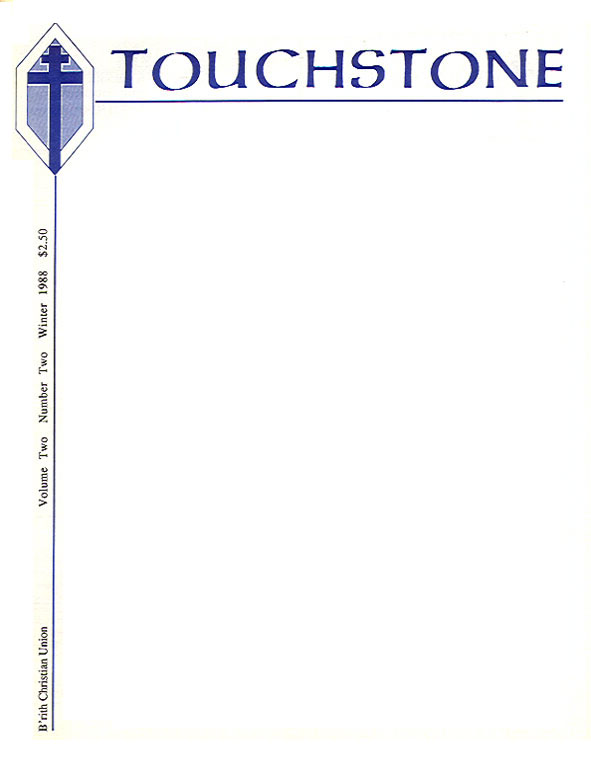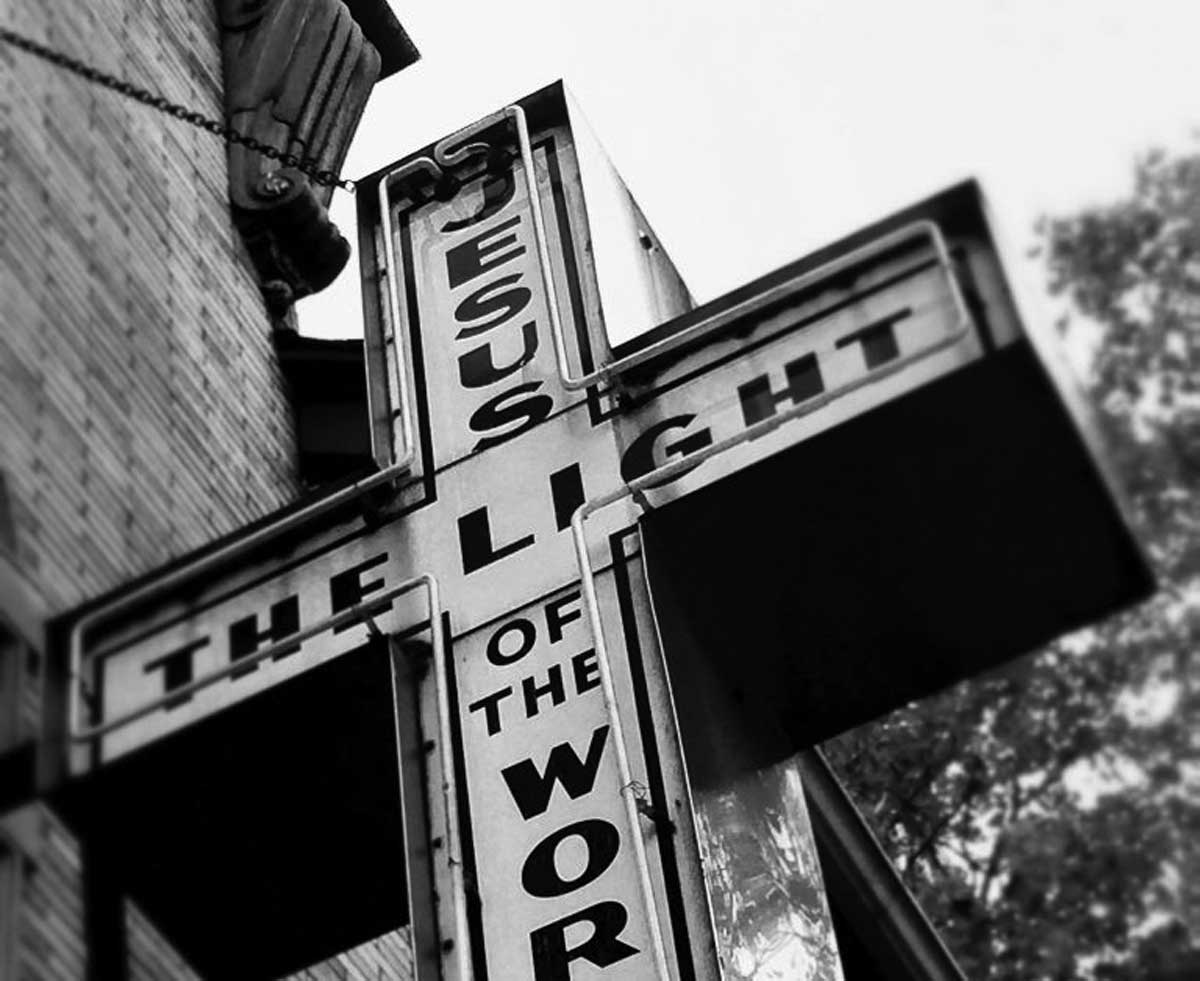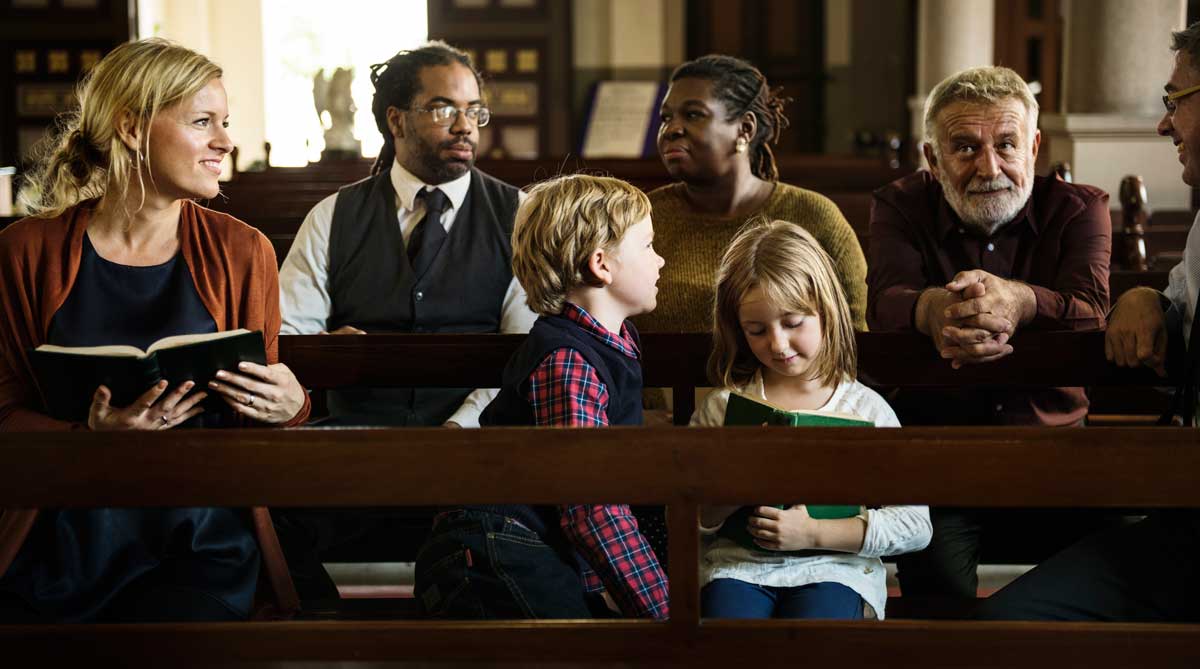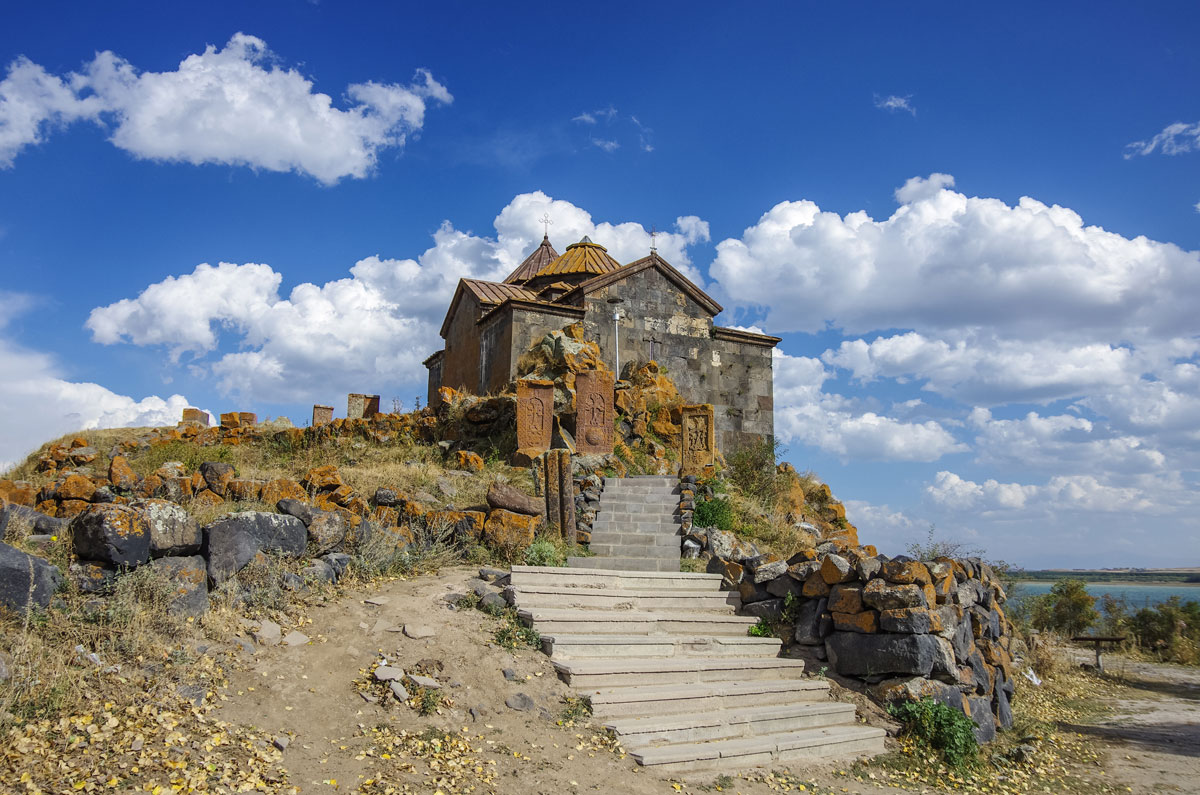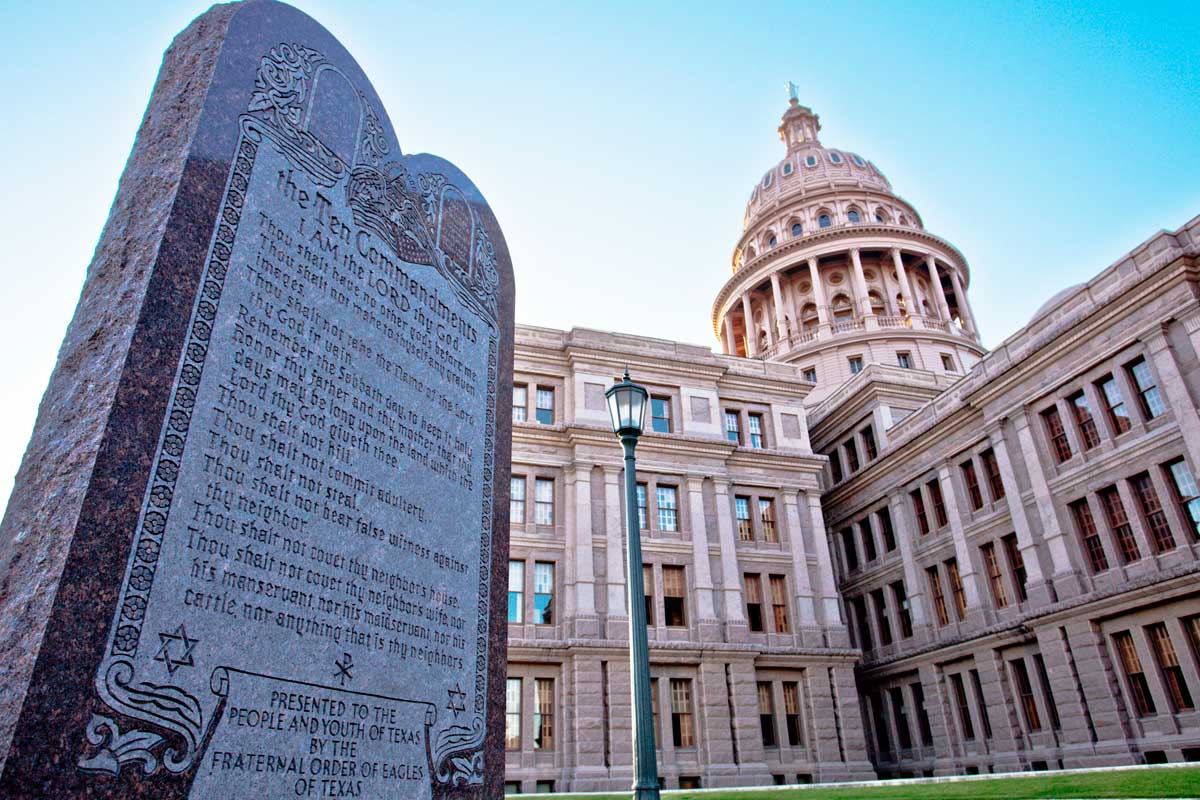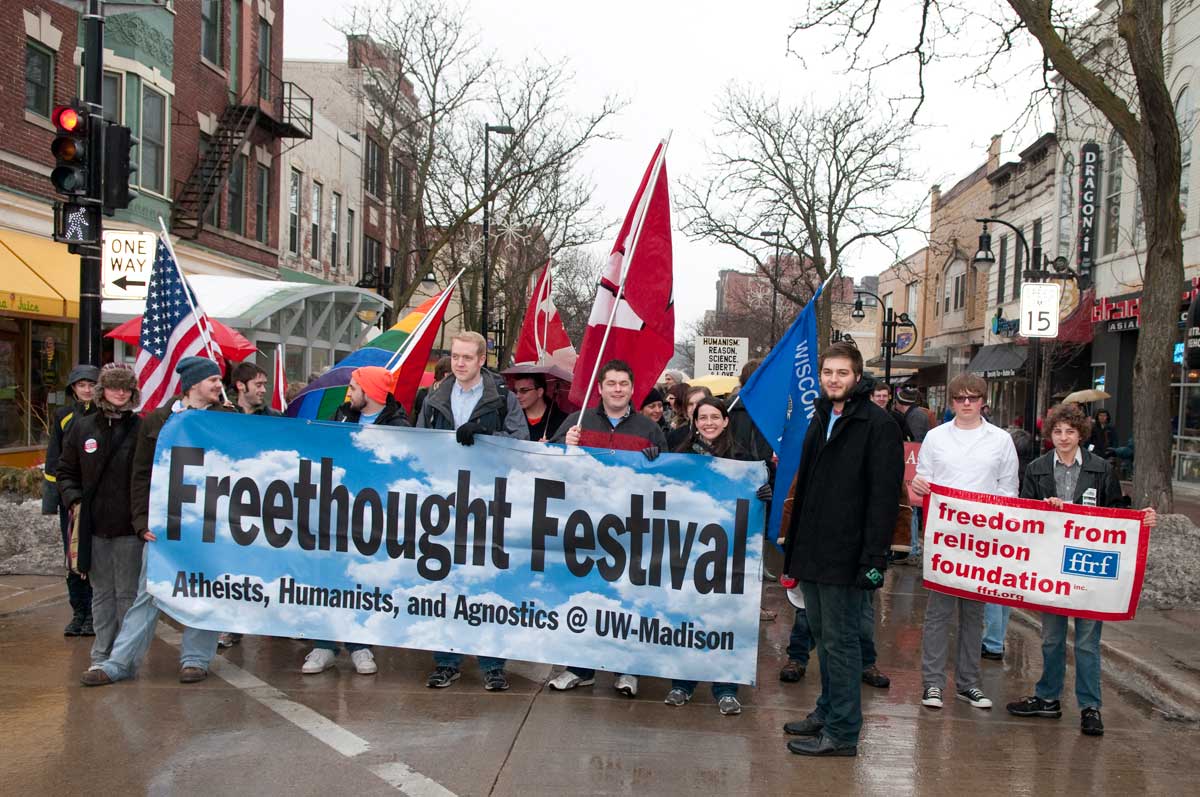Decalogue for Ecumenical Discipleship
A Call to Daily Commitment
by Donald Charles Lacy
In a world that seems to be shrinking on a daily basis we are being led by the Holy Spirit into exciting and challenging areas and arenas. As disciples of Jesus the Christ we are no longer just witnessing in more or less carefully defined communities. Most of us discover ourselves in daily contact with persons seeking to be more than they are under the banner of Christ. In many cases our option is not the decision whether to relate to this one or that one. It is the option of helping to determine the quality of the relationships that by the sheer force of today’s living has brought them into being. Therefore, our ecumenism must be intentional and have the hallmarks of a practical discipline.
Dare we suggest a “decalogue”? Yes.
1. Daily affirmation that Jesus calls His followers to be one.
An early morning prayer time or a regular devotional period can be enriched by recalling and/or reading John 17:20–23 along with whatever else may be on the agenda. Just don’t put it in some secluded spot and give it the last 30 seconds! The memorization of this passage so that it can in fact be a part of our thinking and feeling processes should not be overlooked. We seem to place in our memories many other less significant ideas that may be a part of personal systems already overloaded with questionable items.
It is this daily affirmation of Christ’s call to be one that brings to the conscious level a sobering and magnificent acknowledgement: The Holy Spirit is at work in ways pointing to our Lord’s call being fulfilled. In short, He will no longer be denied a positive answer to His prayer. “Oneness” is not any longer one of the lesser lights on earth, merely shining brightly in the far away heavens. It is a light ever-increasing in brightness in the here and now, which shines in and through people, places, and things with or without their permission.
2. Daily praise for the infinite variety of religious expression evidenced in the Universal Church.
Too long we have sifted and sorted in order to be loyal to a narrow denominational and/or doctrinal image. Praise God for the infinite smorgasbord placed in our midst! Too long we have been bound by categories that have inevitably tended to bring us out of range of insights coming from traditions other than our own. How shall we escape in our time if we neglect a salvation coming to us in unlimited expressions and yet lifting up one Savior and Lord? The Holy Spirit enables us through all senses to share in the greatness of the Universal Church.
Such praise, while it ought to be a part of our personal worship and study, should never be limited to that. At a gathering of clergy and/or laity or even in a largely secular gathering praise God openly and forthrightly for the cornucopia always there but especially open to view in our time. The sheer hope and joy coming from such an orientation to life (and death) has a way of lighting candles in some of the darkest dungeons constructed by Satan to prevent Christ’s people from being united.
3. Daily study of the beliefs and/or organizational life found in denomination(s) other than our own.
Most of us have found our religious pilgrimage to be with one or just a few denominational groupings. Even clergy deeply involved in the ecumenical movement are ordained by this or that segment of Christ’s Body. While they may hold standing in more than one, we are not speaking of several. It becomes imperative, therefore, to look beyond such seemingly necessary confinements to others that are different and yet the same. Gone is the day of being impoverished by straightjackets that can neither contain nor embody the fullness of the Christ and His Church.
We are blessed with numerous teaching and learning tools that can bring us, at least, in an informational way what fellow pilgrims believe and how they understand polity. Such a worthy endeavor cannot be done in a haphazard way. The significance of it requires purposeful study every day. Hopefully, one positive result will be to challenge us to understand why we are what we are in a denominational sense. There is no cause to fear contamination because—after all—we all belong to Him!
4. Daily prayer for those within and outside our denomination that all might appreciate and be enriched by the diversity found in the Universal Church.
The freedom found in spontaneous prayer is a delightful delicacy. How could we possibly continue our journey without it? Having made that admission, our prayer life can be weakened and severely limited if this is our singular mode of visiting with God. We can also find ourselves in strictures by interceding solely for those who serve with us in a local church setting and/or in a denominational framework, even if we do so with punctuality. Our prayers should reflect spiritual growth and who dares to thwart appreciation and enrichment found in rich diversity?
Holy Scripture as it speaks to us in Ephesians 4:1–16 provides the background and fertile soil out of which such prayers naturally emerge. Yet, there is more involved than this recognition. Firm commitment is needed. We are called to discipline ourselves each day to pray for those “within and outside” in order that the indispensable ministry of the Holy Spirit may work wonders in the Body, ultimately adhering only to the perimeters set by the Lord of the Church.
5. Daily practice of intentionally conversing with a person(s) in another denomination(s) about the Christian Faith.
Christians can and do tell fascinating stories about themselves and their Faith. We miss much by not entering into conversation and even dialogue with others wearing different labels. We are brothers and sisters; this can become apparent in the openness of sharing what makes sense in our religious lives. The learning experience alone can make for greater empowerment of the Gospel. It is important we not argue to the extent we contradict and work against the unity already present. It is likewise important, however, we be honest and forthright with minds wide open.
Some of the best conversations can come about in an informal way under the guidance of the Holy Spirit. The “chance” meeting of someone who just happens to have curiosity about your tradition and wants to meet for coffee each morning is the kind of experience that enhances you and him/her. Our “intentionality” can take us into seemingly unplanned but marvelously helpful encounters that the Holy Spirit makes possible because of readiness.
6. Daily meditation on what it means to be a part of the Body of Christ.
Especially important for our nourishment are the 12th and 13th Chapters of 1 Corinthians. At least a weekly reading of them enables us to have the words, phrases, and verses at our ready disposal during whatever portion of the day (or night) we elect to meditate upon His Body. While the 12th chapter delineates for us the working of the one Spirit and the one Body with many parts, the 13th sends the holy rays of an undergirding and abiding love upon us as instruments of reconciliation.
We need not be apprehensive about whether this idea or that idea fits into a denominational mold or mentality. We certainly need not enter into meditation threatened by what this person or that person will think of our discoveries. Granted, we live in an age of intimidation and manipulation. Yet, doesn’t the Lord of the Church promise the Spirit to His people and that it will lead them into all truth? Furthermore, Saint Paul reminded a young seeker that disciples of the Christ were not given a spirit of timidity but one of power, love and self-control.
7. Daily acknowledgement of our roots found in the rich heritage of Judaism.
This seems to be an easy one to forget or avoid! Yet, in our day and time it is necessary in order for us to get a full picture of salvation history. We are blessed with ever-increasing workshops, publications, etc., that reveal the closeness of those adhering to the Star of David and those claiming the Cross from the very beginning of our Faith. The Jewishness of Jesus and the sect status of Christianity in the early years are not to be forgotten. In fact, they are to be celebrated and built upon. While we kneel before Jesus as Savior and Lord, we also—along with our Jewish friends—call Abraham our father.
The growing trust among Jews and Christians is cause for joy and hope. Triumphalism that has blighted our witness for centuries deserves exposing and fortunately this is occurring to the benefit of both Jews and Christians. The Hebrew Scriptures were an everpresent force in the lives of Jesus, Mary, Peter, James, John and Paul. Does not the Christ quote Deuteronomy 6:4 as He speaks of the great commandment? Stereotypes that are largely negative do not fade easily. To come to terms on a day-to-day basis with the verities out of which we Christians (to an extent) evolved is indeed an exemplary habit.
8. Daily openness to the continually emerging opportunities for worship and understanding among Christians.
The Holy Spirit is at work! The separation felt and actually experienced among His disciples is melting away. While there is still pain in Christ’s Body that comes from some exclusions at our Lord’s Table, there are more and more other types of worship that are fully open to all. Yes, Roman Catholics are singing hymns by Martin Luther and Charles Wesley. Yes, Protestants are taking more seriously the real presence of their Savior and Lord as they receive “His body and blood.” The creative mixing of liturgies and the re-writing of many forms of worship are enabling us to come to grips with more uniting us than dividing us.
Insights and wisdom are coming to us out of the ancient Church(es) with the Orthodox often leading the way. Anglicans are building bridges as they often provide a middle ground to which all Christians can relate. Yes, and who can deny the healing relevance of the “Decree on Ecumenism” and the momentous Lima Document? To be open to receive such a magnificent outpouring of the Holy Spirit is nothing more than claiming what is rightfully ours. As a “royal priesthood” we were never intended to hobble along like crippled and starving children. We were and are meant to grow in understanding. The King’s Castle has many rooms for His subjects to explore, all of them providing wholeness and holiness.
9. Daily admission that it was and is scandalous for Christians to be divided.
To recount the horrendous deeds of those who claimed to know and follow the Christ, especially as they related to one another, provides a stench singularly painful and humiliating. To own such a disgrace, however, grants us the humility and sincerity to move to better days. Our forefathers and foremothers (much like us) were not so despicably evil as they were incomplete and limited. Perhaps our most insidious problem is to gloss over our differences. Yet, an even more destructive tendency may be to disown a scandal that dates, at least, from the time the Corinthians were trying to decide to whom they belonged. We do well to pose Saint Paul’s inquiry, “Is Christ divided?”
There is creative tension that comes from admitting our dividedness each day. In our depths we call forth the Crucifixion of our Lord, remembering the countless crucifixions we continue to inflict. Then, we are brought face to face with our special task which is to make scandal a thing of the past by obeying the call to be one “so that the world may know.” During those moments we also discover the power to go on until we hear Him say, “Well done, good and faithful servant.”
10. Daily consecration of our entire being to the cause of Christian unity.
“To consecrate” has an irrevocable and eternal ring to it. It is appropriate because of the holy joy and enduring solemnity it brings. We cannot as disciples of the Christ play at union, merger, consolidation, assimilation, etc., any longer. Ours is an inspirational but serious undertaking. It may very well mean an invitation to die, what some would call an untimely death, or to carry crosses a flabby and sometimes flippant Church(es) would consider far beyond the call of duty. Yes, and as substantial strides are being made we may learn to appreciate as never before the Son’s cry, “Father, forgive them.”
Our day calls for an undivided allegiance to the cause of Christian unity. It is not merely one seeking conversion(s) to a way of life in which we can be caught up in a myriad of deeds and thoughts, allowing us to escape from the blessed work culminating in both a visible and invisible church. With minds fully open but determined, hearts not only warmed but aflame, and spirits willing but guided by “the Spirit” we are girded for warfare. While we do not presume to know the final shape of the unity we seek, by the grace of God we shall be victorious.
Dr. Donald Charles Lacy is a United Methodist pastor, teacher, writer and ecumenist. He chairs the Ecumenical Concerns Department of the Indiana Council of Churches and currently pastors a church in Leesburg, Indiana.
subscription options
Order
Print/Online Subscription

Get six issues (one year) of Touchstone PLUS full online access including pdf downloads for only $39.95. That's only $3.34 per month!
Order
Online Only
Subscription

Get a one-year full-access subscription to the Touchstone online archives for only $19.95. That's only $1.66 per month!
bulk subscriptions
Order Touchstone subscriptions in bulk and save $10 per sub! Each subscription includes 6 issues of Touchstone plus full online access to touchstonemag.com—including archives, videos, and pdf downloads of recent issues for only $29.95 each! Great for churches or study groups.
Transactions will be processed on a secure server.
more on ecumenism from the online archives
more from the online archives
calling all readers
Please Donate
"There are magazines worth reading but few worth saving . . . Touchstone is just such a magazine."
—Alice von Hildebrand
"Here we do not concede one square millimeter of territory to falsehood, folly, contemporary sentimentality, or fashion. We speak the truth, and let God be our judge. . . . Touchstone is the one committedly Christian conservative journal."
—Anthony Esolen, Touchstone senior editor





